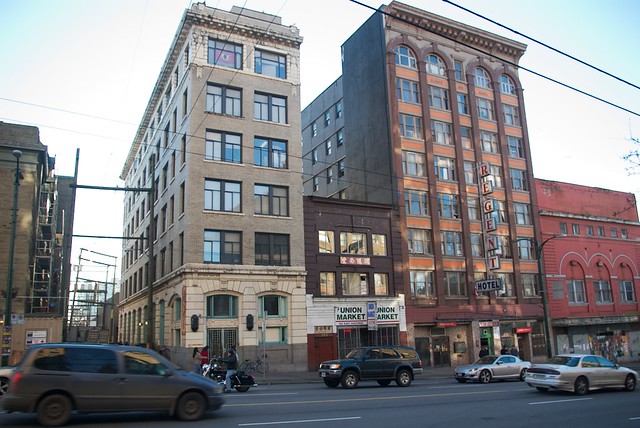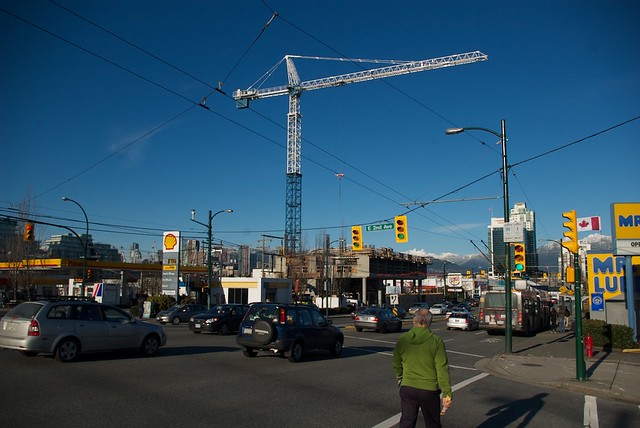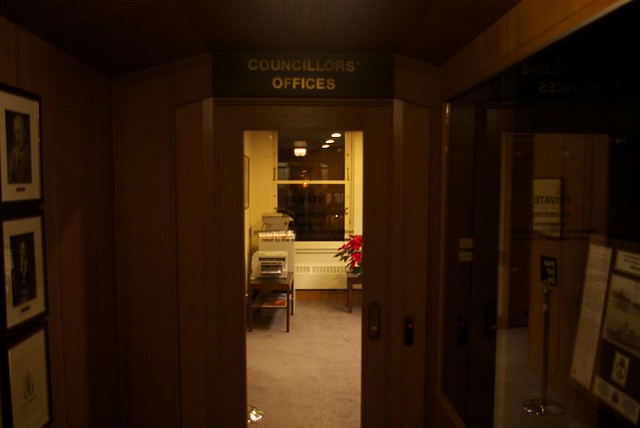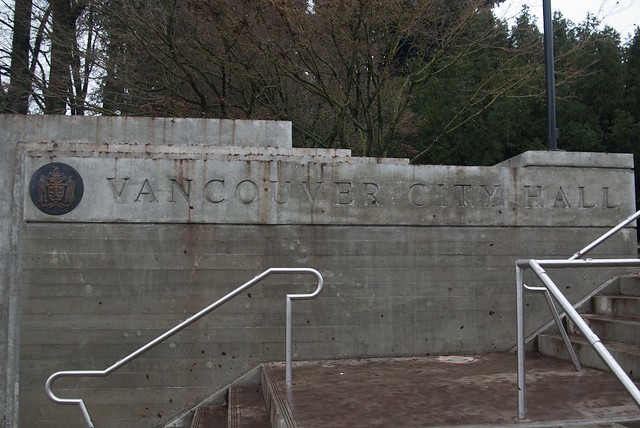There is a renewed grassroots effort to stop condo development on the site of the historic Pantages Theatre at 138 East Hastings. Worthington properties currently has plans to build 79 condo units on the site. The project may be approved by the Director of Planning, Brent Toderian later this summer unless there is a public outcry. In order to force a hearing, the public has until August 12 2011 to address concerns to:
Alice Kwan: 604.871.6283, alice.kwan@vancouver.ca and
Scott Barker: 604.873.7166, scott.barker@vancouver.ca
A coalition of community groups has launched a website called The DTES is not for condo developers, which includes a petition and outlines the coalition’s concerns about condo development in the “heart” of the Downtown Eastside. The 100 block of East Hastings includes many community assets that could be negatively affected by gentrification, including the Carnegie Community Centre, Insite, and 400 low-income housing units.
The coalition is calling on the City to reject the developer’s proposal, and asks “the Pantages owner to sell the property at its 2010 assessed value of $3.7 million to the City of Vancouver.” Worthington Properties bought the Pantages Theatre in 2004 for only $440,000. Worthington also purchased the adjacent lots, spending just over $1M to assemble the block for redevelopment. By 2010, the City assessed the value of the lots at $3.7M. But when Worthington Properties tried to sell the block to the City in the spring of 2010, the corporation asked for a price well above market value, and City Council turned down the offer at an in camera meeting on March 22, 2010.
The developer has made millions simply by speculating on an affordable block. Beyond that, they are now insisting on even more profits instead of working with the City to restore one of Vancouver’s three historic theaters, and to build desperately needed social housing. When the City makes every reasonable attempt to purchase a property to meet the ‘public interest’, but the owner won’t sell at a fair price, the City’s next legal step is expropriation. Under the provincial Expropriation Act, the City has the authority to expropriate properties to meet its policy goals in the public interest.




